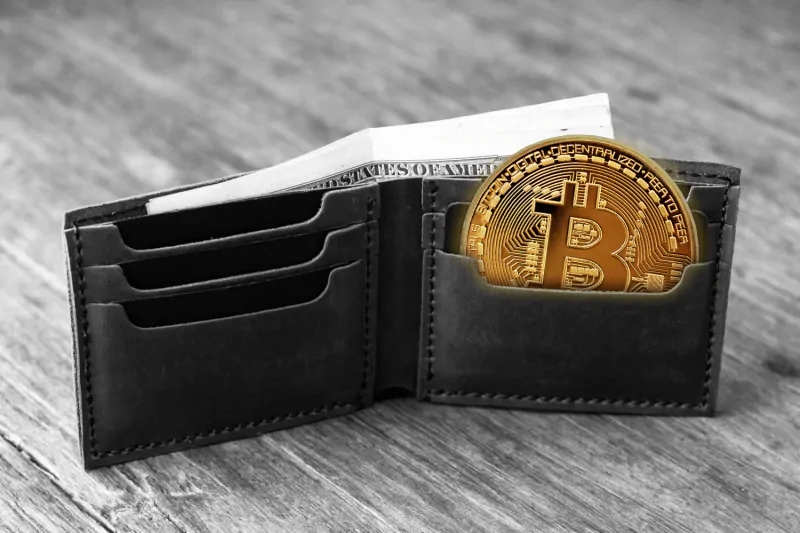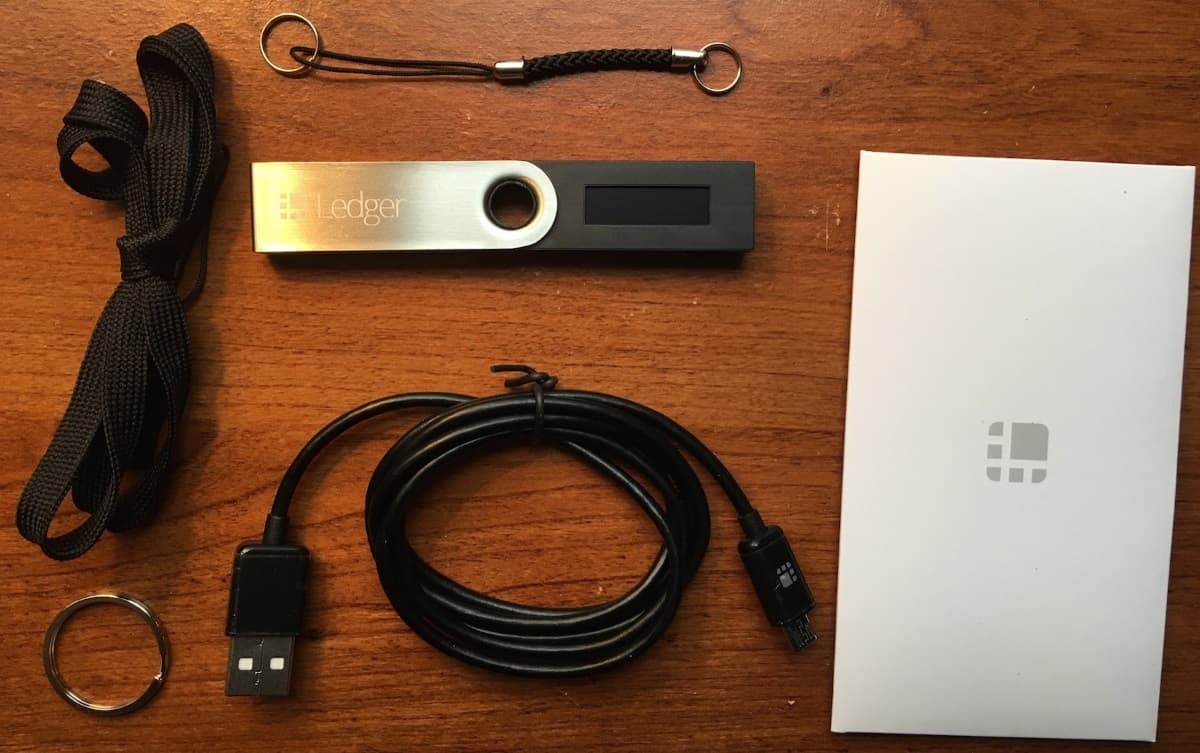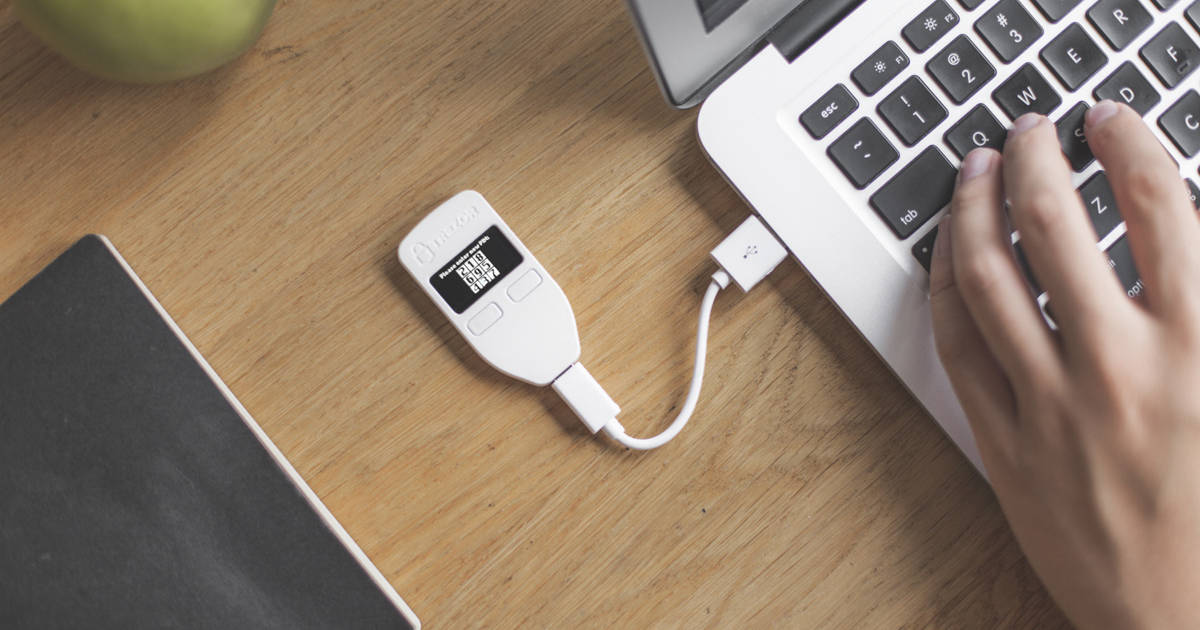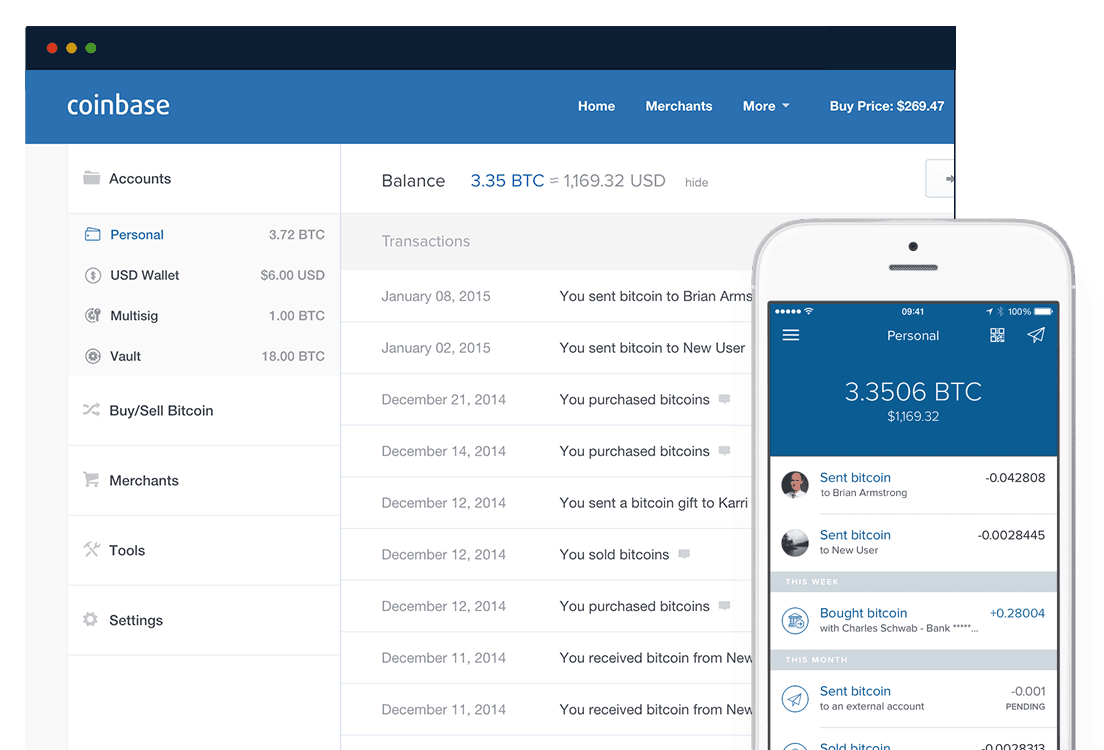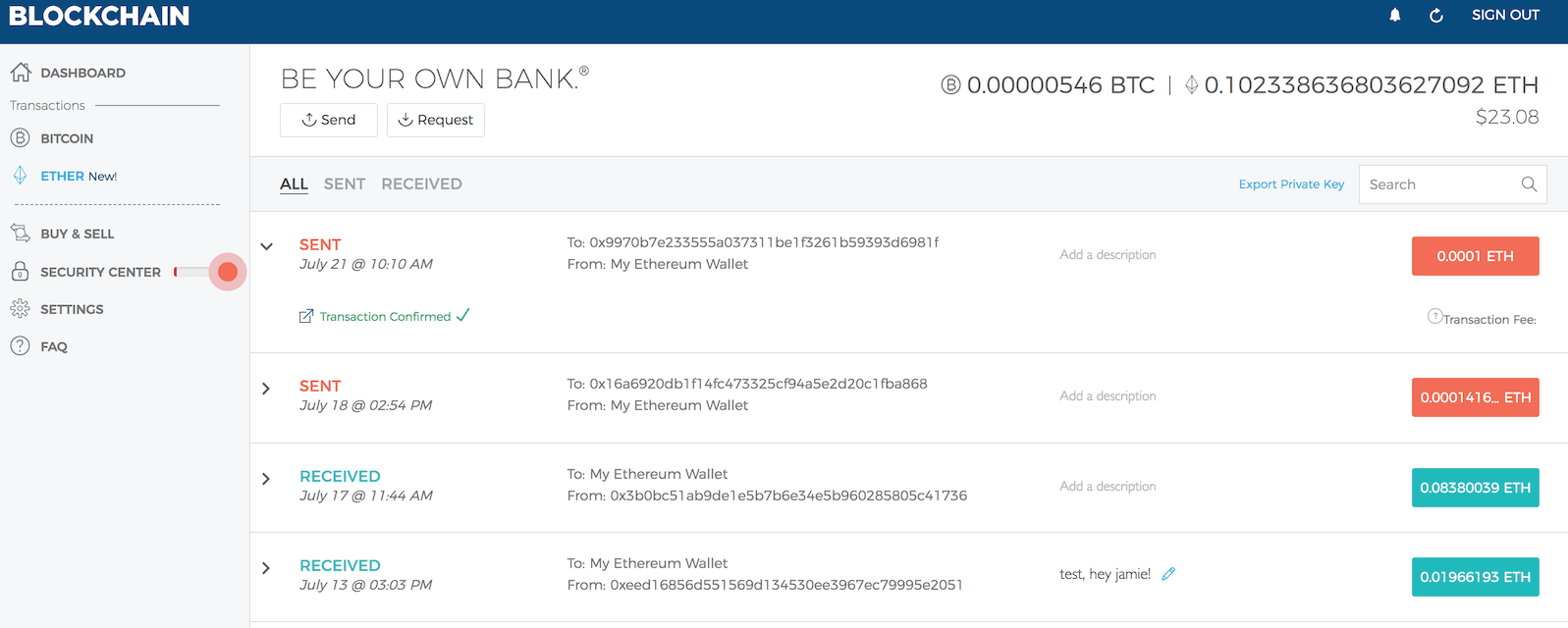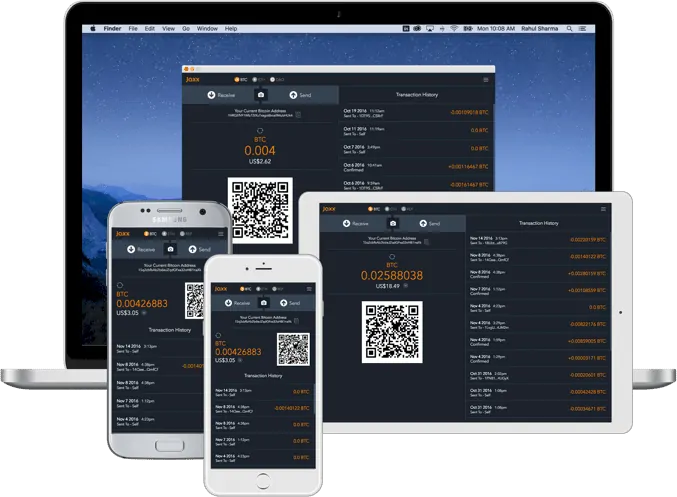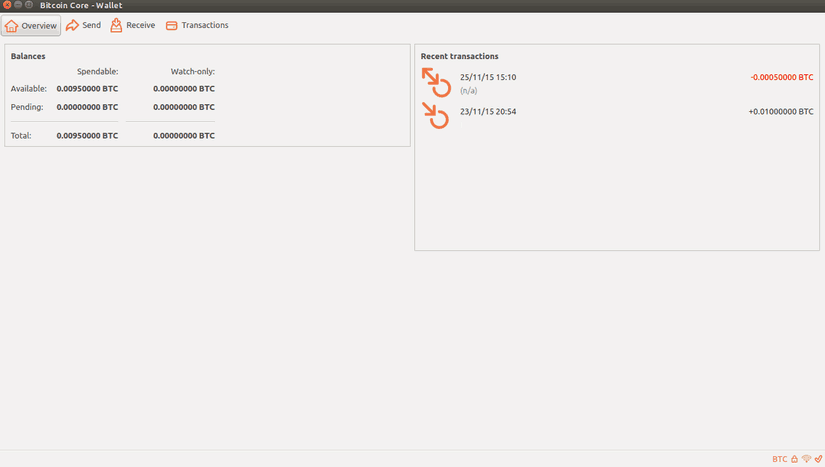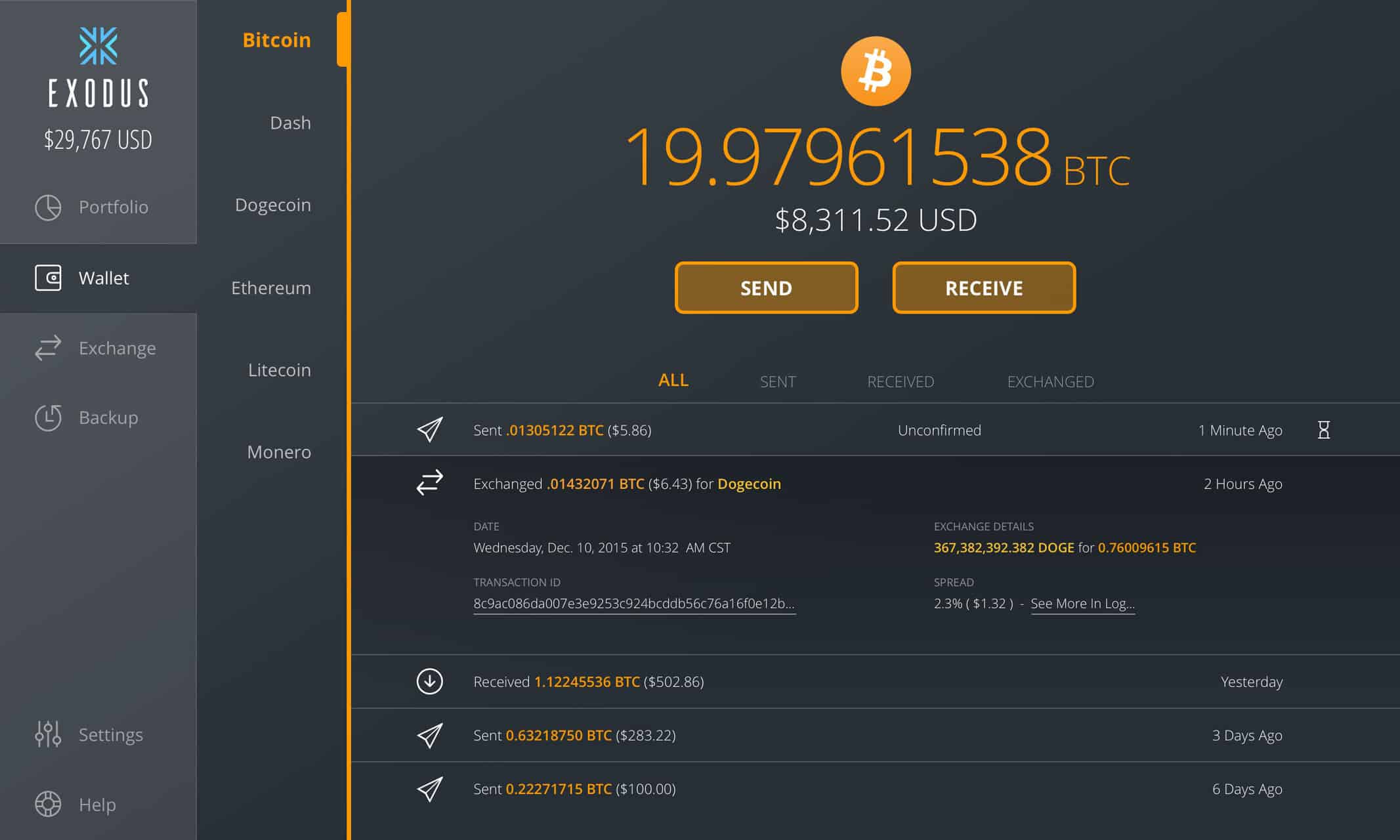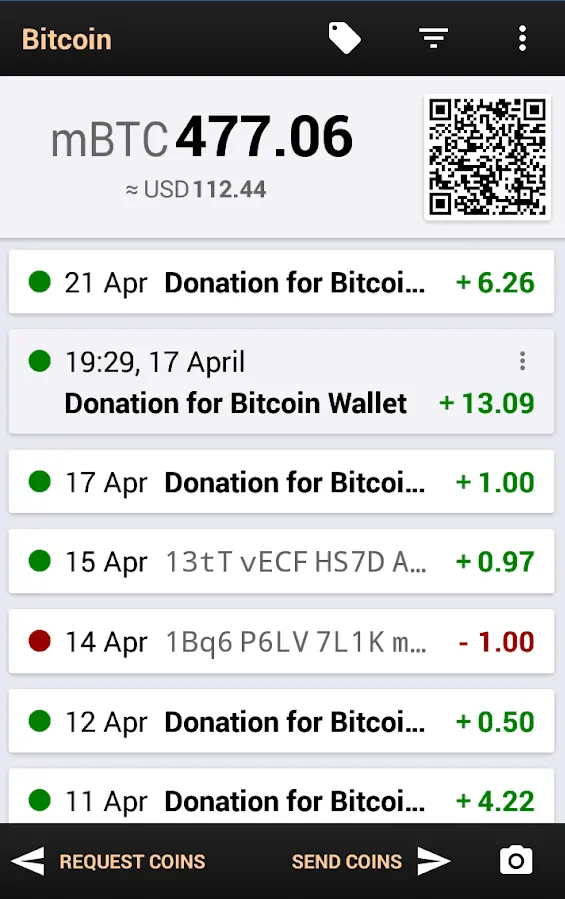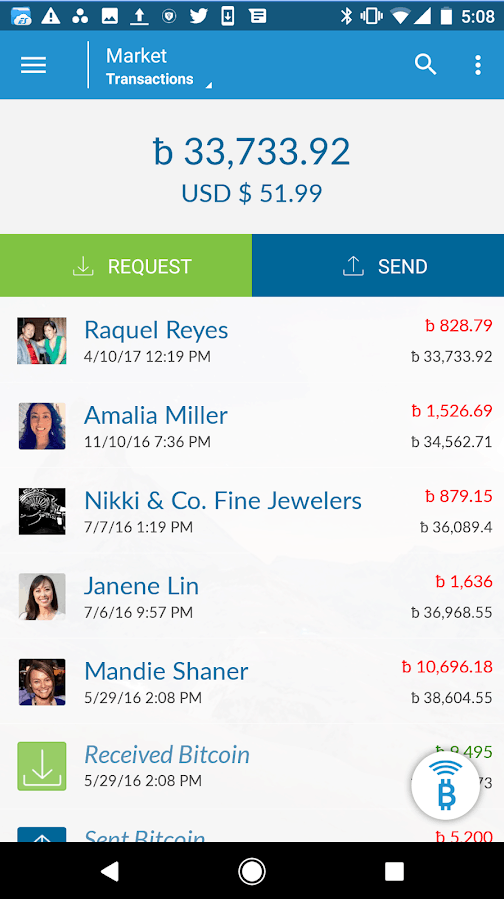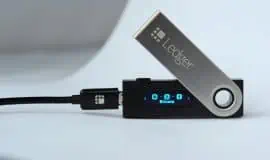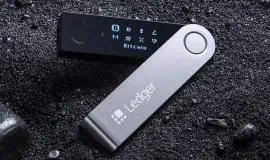There’s no doubt, Bitcoin is part of our daily lives now and it’s currently the cryptocurrency king. With more and more people getting into the cryptocurrency space and buying Bitcoin every day, it’s time to answer one of the most important questions any Bitcoin holder has, what is the best Bitcoin wallet? It’s hardly a surprise anymore, the cryptocurrency space, like the internet, is a jungle – people get scammed every day, coins are being lost or stolen and probably the most feared part, exchanges being hacked. Nowadays, most new customers buy their Bitcoin from exchanges and keep the coins there since every exchange offers them a personal wallet for various cryptocurrencies. However, this doesn’t come without a risk, the exchange holds your funds without offering much control besides allowing you to exchange or withdraw to another wallet. The most recent hack involved Coincheck, a Japan-based exchange that had over $530 million in cryptocurrency stolen by hackers. If that frightens you, it should and that’s why we need to have control over our crypto assets.
What is a cryptocurrency wallet?
Before diving in, let’s go over the different types of wallets so you can understand the idea behind each one. There are 3 types of wallets: hardware, software and paper wallets. Hardware wallets are exactly as they sound, physical wallets that have your private keys encrypted in them. Software wallets are software applications that can be either downloaded locally on your computer/mobile device or are hosted online, usually provided as a service. Lastly, paper wallets are basically your private keys printed out or written on paper. It’s very important to understand that neither of these wallets holds your cryptocurrencies, every coin or token is being “stored” into the blockchain and you have a wallet address, like a bank account number, that’s used to verify and access your funds. So basically, the blockchain is like a decentralized bank where only you have the power to manage your funds as you see fit. To draw a conclusion, the safest wallets are the hardware wallets also known as cold wallets.
Now that we’ve got the basics out of the way, let’s focus on the actual wallets.
Hardware Wallets
Ledger Wallet
The two biggest players in the wallet space are Ledger and Trezor. The most popular wallet from Ledger at this moment is the Ledger Nano S. This wallet looks a lot like a USB drive and for many, it’s the most stylish wallet on the market. Setting up your Ledger is pretty simple, you just need to plug it into your computer, open Chrome and start the set-up process. The wallet will provide you with a recovery seed, which is an added security in case you lose your wallet or wipe it clean. You will also be provided with the possibility of setting up a pin code, similar to a mobile phone – in case somebody steals your Ledger and enters the pin incorrectly 3 times, the device will be wiped clean. Note this may also happen to you (human error), and this is where the recovery seed comes into play, restoring your Ledger account as it was before. It’s very important to understand that the recovery seed must be written on a piece of paper and kept safely, far away from your device, in case something happens. If you lose your device and the recovery seed, it’s pretty much game over for your wallet. Besides Bitcoin, Ledger Nano S also supports other cryptocurrencies such as ETH, BCH, NEO and others. There are a total of 24 cryptocurrencies accepted and you can see the full updated list here. The price for a Ledger Nano S is currently $112 or 98 EUR without shipping costs.
Conclusion – Ledger allows you to keep your Bitcoins safe, grating you full power and the lowest risk factor even in the most extreme cases.
The Trezor Wallet
The Trezor is another popular hardware wallet and it’s fancied by a lot of people for its looks, interface, and community. It’s also our favorite wallet here at CoinElitist, but that’s more of a personal preference. Trezor has the same core principles, it allows you to set-up a PIN to secure your device and provides you with a recovery seed in case something bad happens. Evidently, the recovery seed must be stored in a safe place so you can use it when your Trezor is lost or destroyed. One of the main differences between Trezor and Ledger Nano S is the number of supported cryptocurrencies. Currently, Trezor has fewer currencies than Ledger but it supports the major ones such as Bitcoin, Ethereum, Litecoin, Bitcoin Cash, DASH (full updated list) and since it’s compatible with MyEtherWallet, all ERC-20 tokens. The screen is also bigger on the Trezor and we really like the PIN implementation – it randomizes the numbers’ positions on the screen and offers an interface on the computer for choosing the correct numbers, as you see them on the Trezor’s screen. Basically, if you have some sort of malicious keylogger on your computer and someone wants to steal the PIN, it’s impossible since the positions will always be different. The current price of the Trezor wallet is 89 EUR without shipping fees.
Conclusion – We really like the Trezor wallet, it’s intuitive, easier to use due to its bigger screen and super safe even if your house burns down (and your recovery seed is not there). Basically, your Bitcoins are safe as they can be!
Online Wallets
Coinbase Wallet
Ya that’s right, we’re giving you an exchange as a wallet alternative, not really what we preached at the start of this guide, is it? Well, not quite…Coinbase is the only cryptocurrency exchange (so far) that offers an insurance and a cold storage option, meaning that if the exchange is hacked, your cryptocurrencies are not lost. Another good advantage is that being a popular exchange, you can buy and trade your cryptocurrency there without having to transfer it to another wallet. Coinbase offers its customer a web interface via their website and an iOS and Android application. Also for your peace of mind, Coinbase is backed by reputable investors such as Y Combinator, FundersClub or SV Angel to name a few so it’s safe to say they have a big interest in keeping everyone happy and good funding to improve on their service. Long story short, Coinbase is a very serious company which treats its business with the highest level of professionalism.
Conclusion – Currently, we think Coinbase is one of the best wallet alternatives if you consider holding your funds online.
Blockchain
Blockchain is one of the oldest and known Bitcoin wallets. It’s basically an online service that provides a wallet for storing your Bitcoin and Ethereum. The interface is pretty clean and intuitive but our biggest problem with this service is that all transactions are made via their own servers. This isn’t a security risk necessarily but rather an inconvenience factor since the service suffered some major outages in the past delaying the transfers by a lot. However, the service is completely free and if you’re ok with the possible delays, it’s a viable wallet if you don’t want or can’t afford a hardware wallet.
Conclusion – We don’t really like this service mainly because we pretty much hate delays and while we love the blockchain technology due to its decentralized nature, Blockchain.info adds a centralized layer in front of it.
Software Wallets
Jaxx
Jaxx is one of the more established software wallets created in 2014 by Ethereum co-founder Anthony Diiorio. It’s also the most popular software wallet currently due to its wide adoption, security and overall usage. The wallets uses a 12-word “Masterseed”, similar to the hardware wallets’ recovery seed, which allows you to manage your private keys securely. Besides Bitcoin, Jaxx also supports a multitude of cryptocurrencies such as Ethereum, Ethereum Classic, Litecoin, Dash, Zcash and Bitcoin Cash. Another cool feature is the possibility of converting your Bitcoin into ETH with the touch of a button. The wallet is also integrated with Shapeshift allowing you to exchange different types of cryptocurrencies within the app, a very good feature to have. Jaxx is present on all major platforms and is accessible on iOS, Android, Chrome Extension, Mac, Windows and Linux desktops. If you want a well-rounded software solution, Jaxx is a very good alternative.
Conclusion – We like Jaxx and while it had its issues in the past, it’s a go-to wallet for many users entering the crypto space and even veterans. We pretty much rank this as our no 1 software wallet.
Bitcoin Core
Bitcoin Core is the official Bitcoin client and wallet and while it’s not used much anymore due to slow speeds and a lack of features, it’s a full node, meaning it helps verify and transmit other transactions across the network and saves a copy of the entire blockchain. To quote its developers: “It is these users who keep Bitcoin decentralized. They individually run their own Bitcoin Core full nodes, and each of those full nodes separately follows the exact same rules to decide which block chain is valid.” If you want to feel that you’re really being part of this revolution and you don’t mind the slow speeds, then we recommend this vanilla wallet. Bitcoin Core comes for Windows, Mac OS and Linux.
Conclusion – We cannot hate this wallet even if we want to, it’s the first, it’s the Core. We love Bitcoin and Bitcoin Core.
Exodus Wallet
Exodus is a multi-cryptocurrency wallet which advertises itself as a “Blockchain assets wallet”. Like Jaxx, it supports the top dogs (Bitcoin, Eth, Dash, Litecoin, BCH) and a large array of altcoins. While Exodus is a relatively new wallet compared to Jaxx, being launched in 2016, it still has ways to go but for a lot of people, it already surpassed Jaxx with its features, speed, and altcoins “collection”. Like Jaxx, Exodus is integrated with Shapeshift which allows you to trade your Bitcoins for a multitude of altcoins and the other way around. If you want to see all the altcoins it currently supports and future ones being added, you can check out their altcoins roadmap. The one thing we love most with Exodus, it’s the interface – it’s pretty damn stylish and no software wallet comes even close. Exodus caters to the beginners by avoiding technical jargon and allowing you to perform any action in a simple, straight-forward manner. However, the software is not without its flaws, it doesn’t come with a two-factor authentication, increasing your account security risk. Some users have also reported that Exodus has higher exchange fees than many of its competitors which is a turn-off for most of us.
Conclusion – Exodus is a Jaxx-killer by far in our book if they manage to add 2FA, a mobile app and fix some of their smaller problems. The wallet is a pleasure to use and we’re eager to see how will the dev team improve it in the future.
Bitcoin Wallet
Bitcoin Wallet was the first Bitcoin wallet for Android and it’s still used by a lot of people to this day. The app is pretty easy to use and connects directly to the Bitcoin network with SPV. The app also allows fast backups in case you’re changing your phone or just want to have a backup stored somewhere. Bitcoin Wallet allows you to set-up your local currency or currency of choice, features a block explorer (kinda) and allows you to add a paper wallet to your existing one. The most interesting option, however, is the possibility of paying or transferring Bitcoins to another wallet via Bluetooth or NFC. There are few wallets that currently support NFC and that’s why we included this wallet on our list.
Conclusion – We’re not really fans but we can understand why some people choose it over other solutions.
Airbitz
While Airbitz started out as an iOS wallet, it currently supports both Android and iOS and it’s highly praised by many of its users. Besides being a pretty good Bitcoin wallet with a lot of features for your everyday use, Airbitz also offers a Bitcoin merchant directory on which you can spend your Bitcoins and it’s integrated with Fold, allowing you to get 20% discounts at Starbucks from within the wallet (if that’s a thing to you). The only downside to this app is that while it doesn’t have access to your funds, it saves your account with a classic username/password combination, which we don’t really like. However, for the less tech savvy or if you don’t want to store a lot of BTC on that account, Airbitz is a good alternative.
Conclusion – If a wallet only allows us to protect our accounts with a username and password, it’s a big no-no.
There are a lot more wallets out there who are developed or being improved as we speak and while we cannot cover them all, we’ve chosen the ones we think are the best at this moment in time.
Final Words
Any Bitcoin buyer should understand that nothing is 100% secure, even if you pay a hefty price tag. Hardware wallets are very close on being unhackable but if you factor human error (like forgetting your information), nothing is really 100% safe. You must treat your wallet as you treat anything valuable to you – keep your personal info safe (or in a safe), be disciplined and be wary of phishing scammers or other types of frauds.

